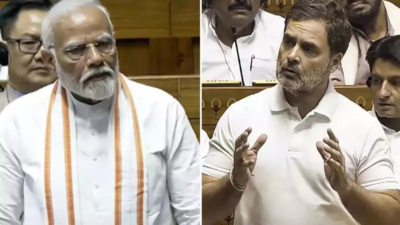
The BJP's allegations, which were made in a recent press briefing, assert that Gandhi's criticisms of Modi are driven by an intense personal animosity rather than substantive policy disagreements. The party has called for a focus on issues of national importance rather than personal vendettas, arguing that such attacks detract from meaningful political debate.
Gandhi, who has been a vocal critic of Modi's government, has not yet responded directly to these claims. His criticisms have primarily centered on issues such as economic policies, governance practices, and alleged corruption. The BJP's accusation marks a new dimension in their strategy to counter Gandhi's critiques, aiming to discredit his arguments by questioning his motives.
Political analysts suggest that this tactic reflects a broader strategy by the BJP to undermine opposition leaders by questioning their integrity and intentions. By framing Gandhi's criticisms as rooted in personal hatred, the BJP hopes to shift the focus away from substantive policy discussions to personal attacks.
Gandhi's critique of Modi has often touched on sensitive topics, including economic management and social policies, which resonate with various voter bases. However, the BJP's strategy to portray these criticisms as driven by personal animosity could potentially alter the narrative, shifting public perception of the ongoing political debate.
The BJP's recent press briefing also included statements from several party members who underscored the need for Gandhi to focus on policy solutions rather than personal grievances. This position aligns with the party's broader campaign strategy to promote Modi's leadership as effective and visionary, contrasting it with what they portray as divisive rhetoric from Gandhi.
The accusations come amid a period of heightened political activity, with both parties gearing up for upcoming state and national elections. The BJP's move to address Gandhi's criticisms in this manner reflects the increasingly contentious nature of Indian politics, where personal and political battles often intersect.
In response to these developments, political commentators are watching closely to see how this latest controversy will influence voter sentiment. The ongoing debate over Modi's leadership and Gandhi's role in challenging it is expected to remain a significant issue in the lead-up to the elections.
As the political landscape evolves, the focus remains on how these allegations will impact public opinion and the broader electoral narrative. The BJP's strategy to challenge Gandhi's motives could set the stage for further exchanges between the two leaders as the election season progresses.
